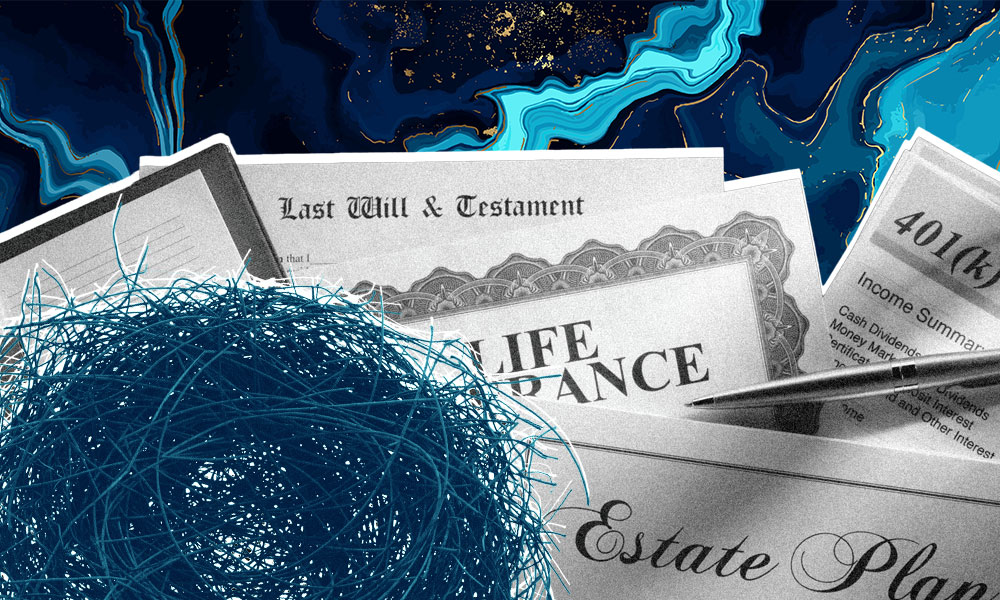The kids have moved out, the house feels quieter and you've finally reclaimed that spare bedroom as your home office or craft room. As an empty nester, this new chapter brings freedom and opportunities — but it also presents a critical moment to reassess your estate plan. Many Americans create basic wills and trusts when their children are young then file these documents away and forget about them for decades. This approach can lead to serious consequences for your financial security, health care decisions and the legacy you hope to leave behind.
Estate planning for empty nesters requires a fresh perspective that accounts for your changing priorities, accumulated assets and evolving family dynamics. Without proper updates, your outdated plan could create unnecessary tax burdens, family conflicts and complications during periods of incapacity or after your passing.
Why do empty nesters need to revisit their estate plan?
The transition to an empty nest often coincides with significant life changes that directly impact your estate planning needs. You're likely at the peak of your earning potential, with retirement on the horizon. Your assets have probably grown substantially since you first created your estate plan. Your adult children may now have families of their own, and you might be considering how to support grandchildren's education or provide for family members with special needs.
Additionally, as you age, the likelihood of health challenges increases, making incapacity planning more urgent. An estate plan created when you were in your 30s or 40s simply won't address the complex needs you face in your 50s, 60s and beyond.


What key components should empty nesters update in their estate plan?
Your estate planning needs have evolved significantly since your children were dependents living under your roof. Here are the essential elements that require your attention:
Wills and trusts
If your will still names guardians for minor children or contains outdated beneficiary designations, it's time for a comprehensive review. Consider whether a revocable living trust might now be appropriate to avoid probate and provide greater control over asset distribution. Many empty nesters find that their priorities have shifted from providing for dependent children to concerns about protecting assets from long-term care costs, minimizing estate taxes and ensuring private, efficient wealth transfer.
Powers of attorney and health care directives
Who will manage your finances or make medical decisions if you become incapacitated? Empty nesters often need to reconsider their designated agents. Adult children who previously lived far away may have moved closer, or your spouse's health status may have changed. Your health care preferences have likely evolved as well, particularly regarding end-of-life care and treatment options that weren't available when you created your original documents.

Beneficiary designations
Retirement accounts, life insurance policies and investment accounts pass directly to named beneficiaries, regardless of what your will states. Many empty nesters are shocked to discover outdated beneficiaries listed on accounts they opened decades ago. Ex-spouses, deceased relatives or estranged family members may still be named, potentially leading to unintended consequences and family conflict.
Digital asset planning
This element likely wasn't part of your original estate plan. Today's empty nesters typically have substantial digital assets, including online financial accounts, digital photos, social media profiles and email accounts. Your estate plan should include provisions for accessing and managing these assets if you become incapacitated or pass away.
What role does legacy planning play for empty nesters?

Beyond tax considerations and asset distribution, many empty nesters become increasingly focused on their legacy — the values, lessons and support they wish to provide for future generations. This might include:
- Educational trusts for grandchildren.
- Philanthropic planning through donor-advised funds or private foundations.
- Ethical wills that communicate your life lessons and values.
- Family business succession planning.
Legacy planning often becomes a priority during the empty nest years as you gain perspective on what matters most to you and how you wish to be remembered. A comprehensive estate plan can help ensure that your financial, charitable and personal legacies endure.
Why should empty nesters consider incapacity planning?
While no one likes to contemplate serious illness or cognitive decline, incapacity planning becomes increasingly critical during the empty nest years. Without proper incapacity documents, your family may face court proceedings to establish guardianship or conservatorship if you become unable to manage your affairs — a process that can be expensive, time-consuming and public.
Comprehensive incapacity planning includes:
- Durable financial powers of attorney.
- Health care proxies.
- Living wills.
- HIPAA authorizations.
- Revocable living trusts with incapacity provisions.
These documents ensure your wishes are honored and enable trusted individuals to make decisions on your behalf without court intervention.
How often should empty nesters review their estate plan?

Estate planning is not a one-time event but an ongoing process that requires regular review and updates. Empty nesters should revisit their estate plan:
- After significant life events (divorce, remarriage, deaths, births).
- When tax laws change.
- Every three to five years, even without major life changes.
- Before major trips or medical procedures.
- When moving to a different state.
Regular reviews ensure your plan remains aligned with your current circumstances, relationships and objectives. The empty nest transition itself should trigger a comprehensive review of your existing documents.
Conclusion
As an empty nester, updating your estate plan is necessary to reflect your new life circumstances. You're likely at peak earning potential, your assets have grown, your family dynamics have evolved and incapacity planning becomes more urgent with age.
Your estate plan needs attention in several key areas: wills and trusts, powers of attorney, health care directives, beneficiary designations and digital asset planning. Your focus may also have shifted toward legacy planning through educational trusts, philanthropic efforts and ethical wills that communicate your values to future generations.
Remember that estate planning is an ongoing process, and your empty nest transition itself should trigger a comprehensive review of your existing documents to ensure they align with your current circumstances and objectives. Taking these steps now will help secure your financial future, protect your assets and create the meaningful legacy you desire.



